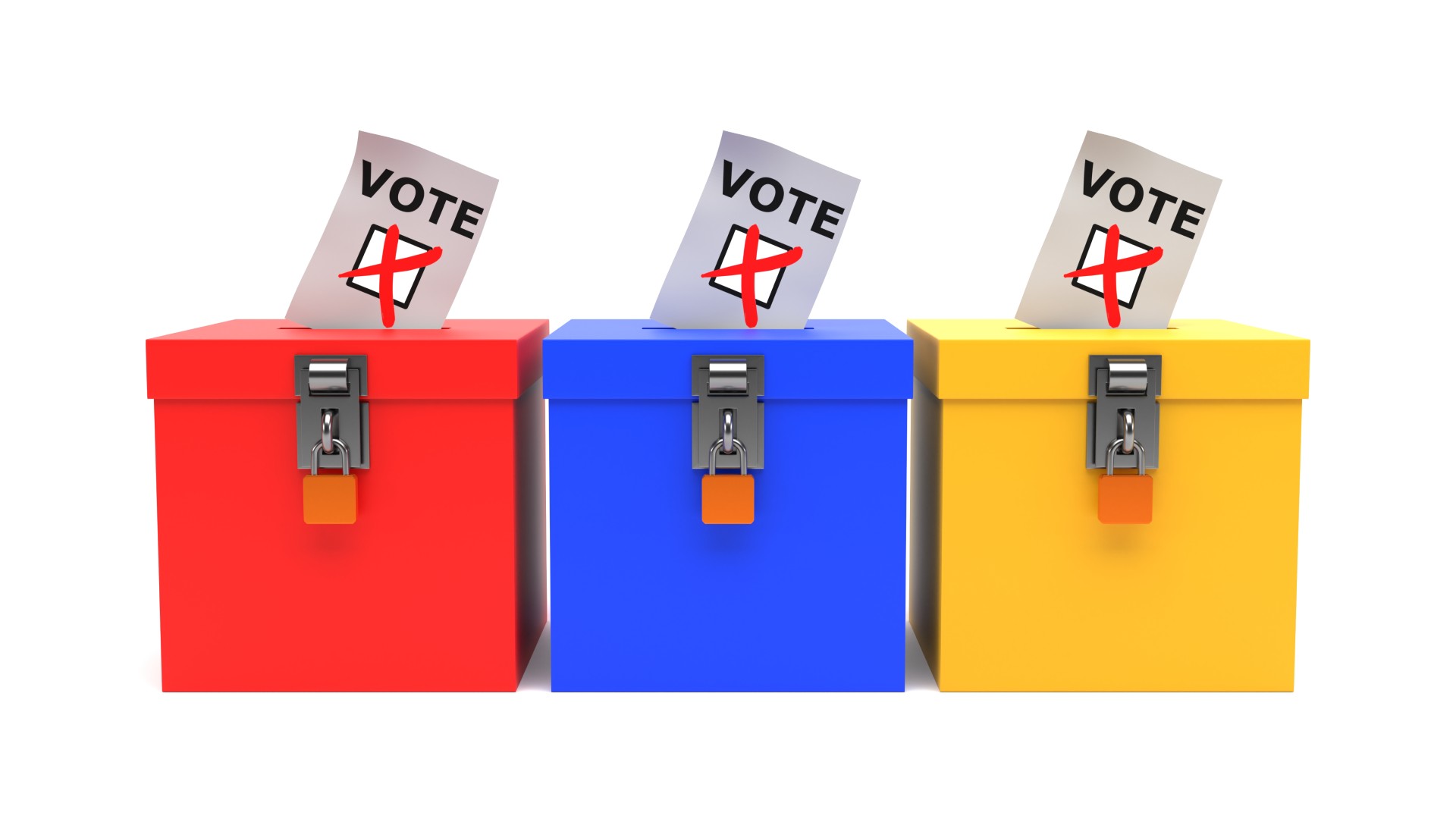General election: will tactical voting make a difference?
There is a 'mixed mood' within parties about the capability of voting tactically

A free daily email with the biggest news stories of the day – and the best features from TheWeek.com
You are now subscribed
Your newsletter sign-up was successful
More than 100 seats in the general election "could be ripe for tactical voting", said The Independent.
Analysis by the paper, using data from YouGov's latest MRP poll, found that almost half of the Tories' projected wins would have a margin of less than five points, making them vulnerable. The Conservatives might also be eyeing up some tactical voting wins if they can persuade Reform UK voters to back them.
How does it work?
Voters deliberately choose not to vote for their first-choice candidate, usually because their favourite has little chance of winning. They might opt for their second choice if they think it will stop another party from getting into power. For instance, if a Labour voter lives in a marginal seat that is closely contested by the Conservatives and the Lib Dems, they may vote Lib Dem to keep the Tories out.
The Week
Escape your echo chamber. Get the facts behind the news, plus analysis from multiple perspectives.

Sign up for The Week's Free Newsletters
From our morning news briefing to a weekly Good News Newsletter, get the best of The Week delivered directly to your inbox.
From our morning news briefing to a weekly Good News Newsletter, get the best of The Week delivered directly to your inbox.
Tactical voting websites claim to show the most likely contenders in each constituency, based on polls or previous elections, and some recommend which party to choose in order to keep another out of government.
Has it worked before?
When the Conservatives have suffered landslide defeats in the past – as they did in 1906, 1945 and 1997 – "these have been at the hands of co-ordinated anti-Tory coalitions", said The Economist. And "another such coalition may be forming now".
Widespread disillusionment with 14 years of Tory rule has combined with Keir Starmer's efforts to move Labour to the centre, making it easier for Liberal Democrat voters to countenance backing his party. By contrast, Reform UK appears much less likely to back the Conservatives in order to stop progressive candidates winning.
One of the "striking features of local elections and parliamentary by-elections in this parliament has been the incredible willingness of Labour voters to vote Liberal Democrat, and vice versa", said Stephen Bush in the Financial Times. But we don't know if this will translate to the general election, which has a lower proportion of engaged voters.
A free daily email with the biggest news stories of the day – and the best features from TheWeek.com
"Less politically engaged voters, who are more likely to vote in a general election than in by-elections, may not be as attuned to these possibilities", said The Economist.
A survey carried out by Deltapoll last year found that just 52% of voters could correctly identify the winning party in their local area, dropping to 19% when asked who came second.
Will it make a difference in 2024?
There is a "mixed mood" among party insiders on how big a role tactical voting tools will play, said Politico. "Skeptics say British voters just aren't clued up enough on the finer points of the country's system to get tactical voting really firing."
Constituency boundary changes, which represent a once-in-a-generation shake-up in the electoral map from the last general election in 2019, have made it even harder to work out which party has the best chance of winning.
Like in previous elections, said Joe Twyman, director of polling firm Deltapoll, it might turn out to be the "case of the dog that failed to bark".
-
 How the FCC’s ‘equal time’ rule works
How the FCC’s ‘equal time’ rule worksIn the Spotlight The law is at the heart of the Colbert-CBS conflict
-
 What is the endgame in the DHS shutdown?
What is the endgame in the DHS shutdown?Today’s Big Question Democrats want to rein in ICE’s immigration crackdown
-
 ‘Poor time management isn’t just an inconvenience’
‘Poor time management isn’t just an inconvenience’Instant Opinion Opinion, comment and editorials of the day
-
 The Mandelson files: Labour Svengali’s parting gift to Starmer
The Mandelson files: Labour Svengali’s parting gift to StarmerThe Explainer Texts and emails about Mandelson’s appointment as US ambassador could fuel biggest political scandal ‘for a generation’
-
 Will Peter Mandelson and Andrew testify to US Congress?
Will Peter Mandelson and Andrew testify to US Congress?Today's Big Question Could political pressure overcome legal obstacles and force either man to give evidence over their relationship with Jeffrey Epstein?
-
 Reforming the House of Lords
Reforming the House of LordsThe Explainer Keir Starmer’s government regards reform of the House of Lords as ‘long overdue and essential’
-
 How ‘Manchesterism’ could change the UK
How ‘Manchesterism’ could change the UKThe Explainer The idea involves shifting a centralized government to more local powers
-
 How long can Keir Starmer last as Labour leader?
How long can Keir Starmer last as Labour leader?Today's Big Question Pathway to a coup ‘still unclear’ even as potential challengers begin manoeuvring into position
-
 What is at stake for Starmer in China?
What is at stake for Starmer in China?Today’s Big Question The British PM will have to ‘play it tough’ to achieve ‘substantive’ outcomes, while China looks to draw Britain away from US influence
-
 ‘Dark woke’: what it means and how it might help Democrats
‘Dark woke’: what it means and how it might help DemocratsThe Explainer Some Democrats are embracing crasser rhetoric, respectability be damned
-
 Can Starmer continue to walk the Trump tightrope?
Can Starmer continue to walk the Trump tightrope?Today's Big Question PM condemns US tariff threat but is less confrontational than some European allies